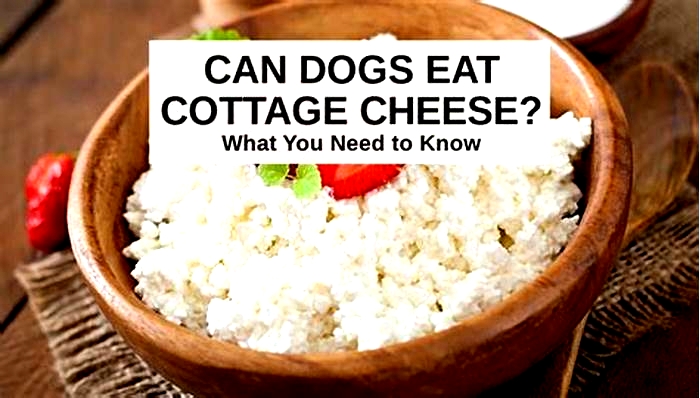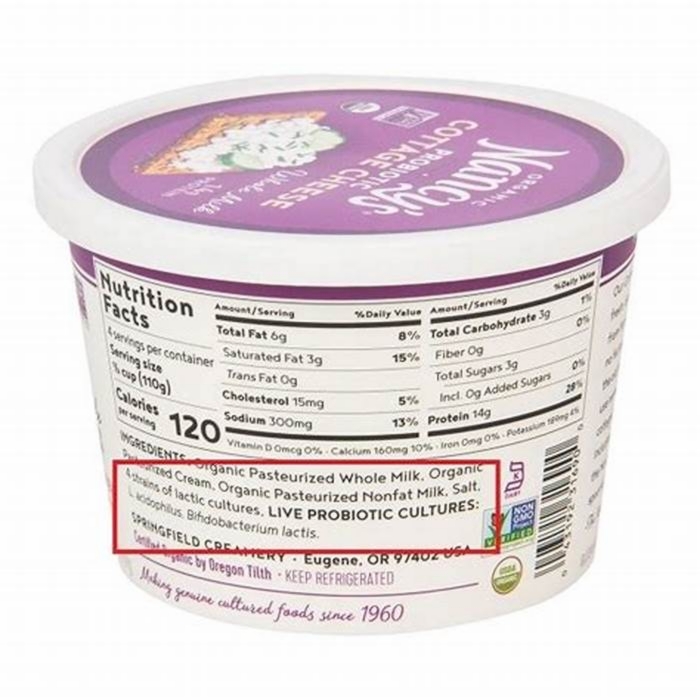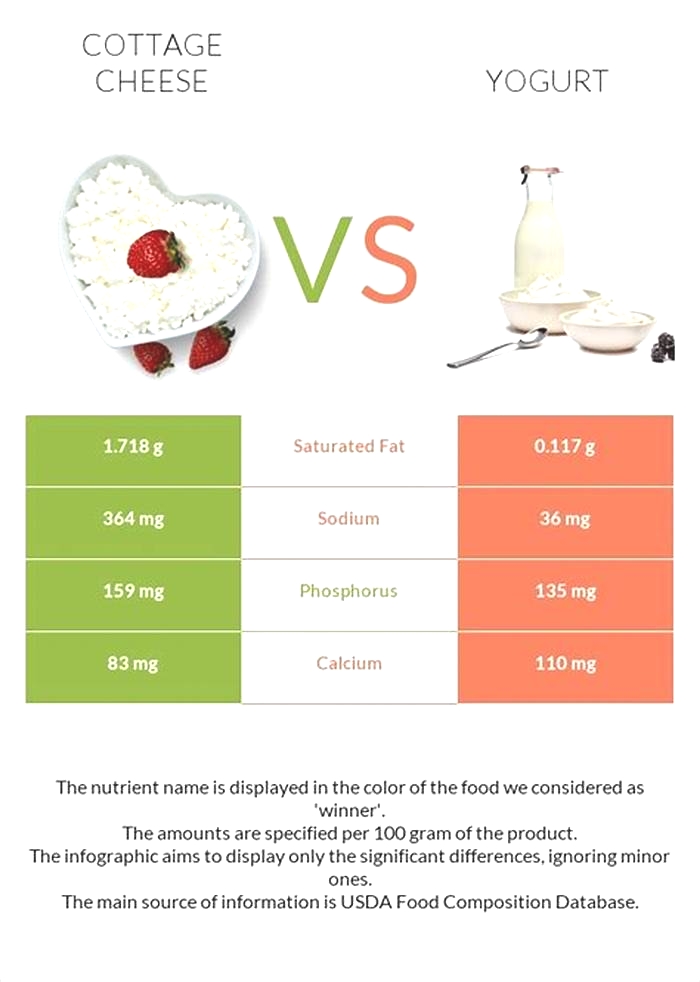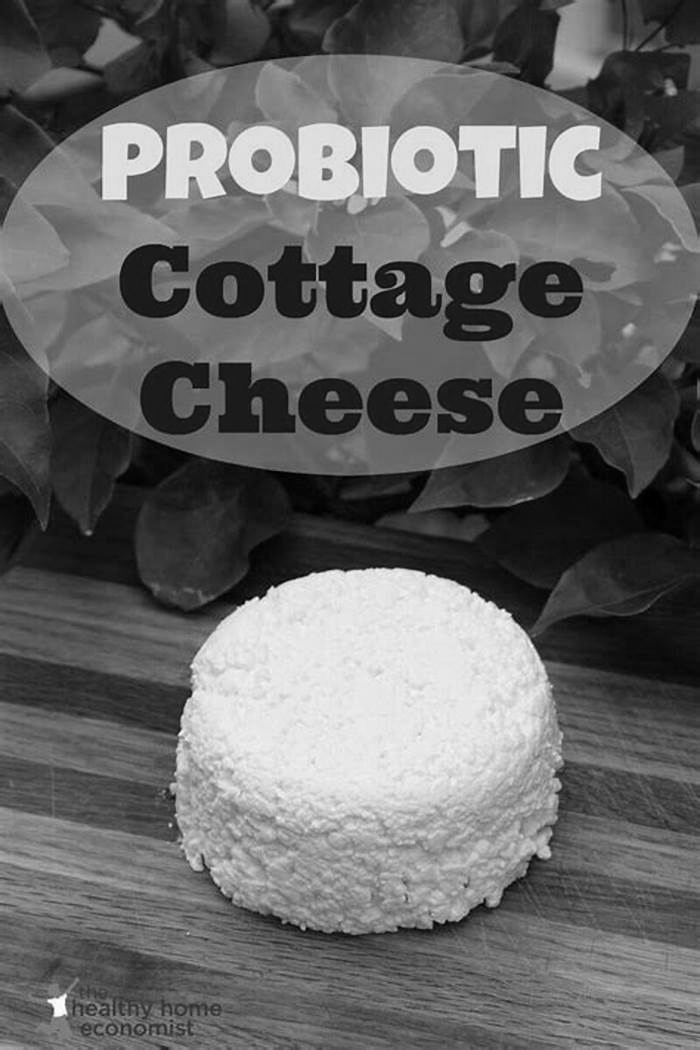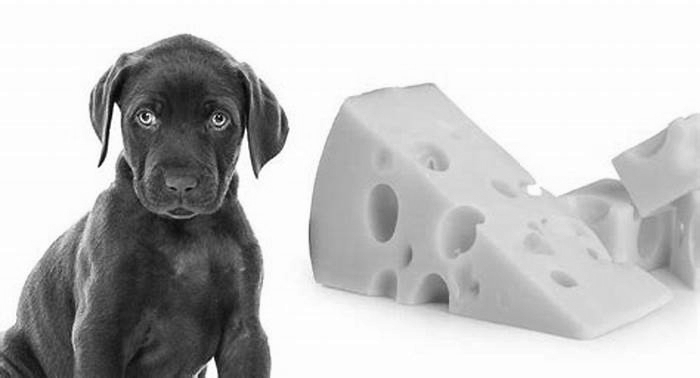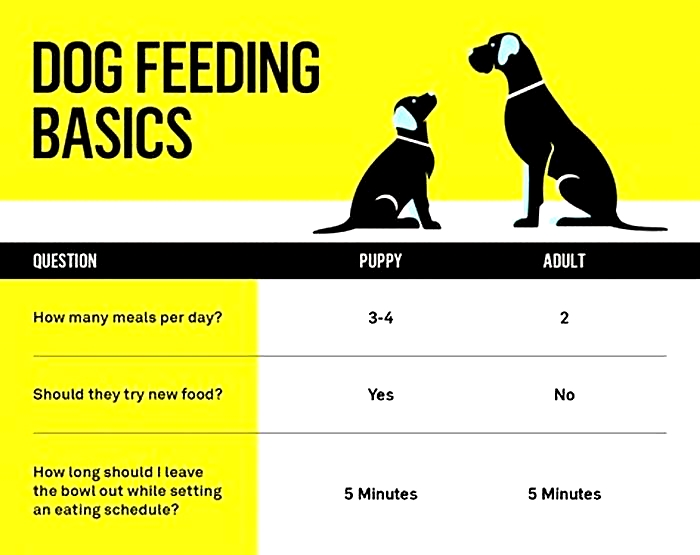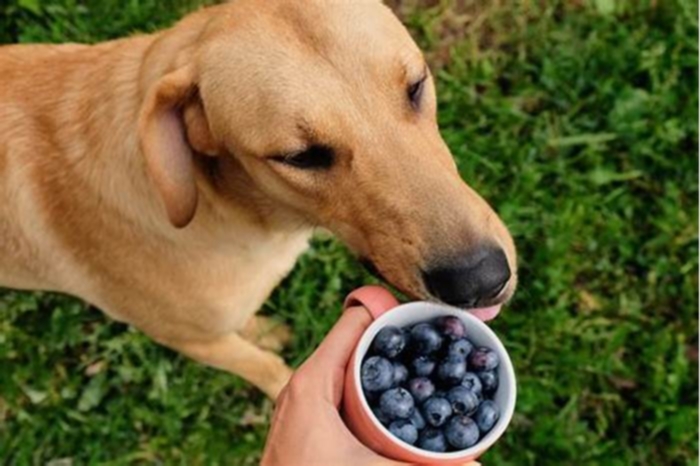Is cottage cheese ok for dogs
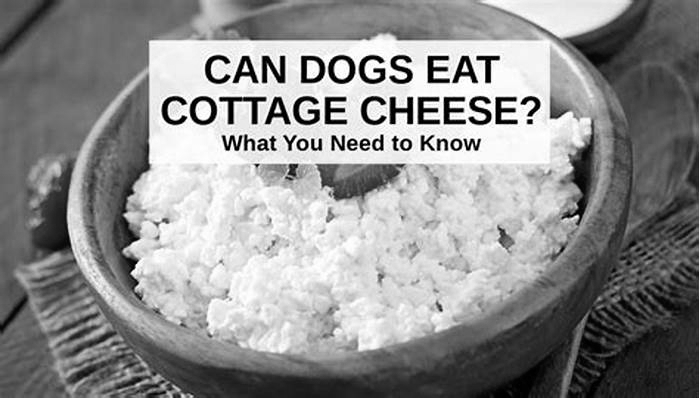
Can Dogs Eat Cottage Cheese? A Comprehensive Guide
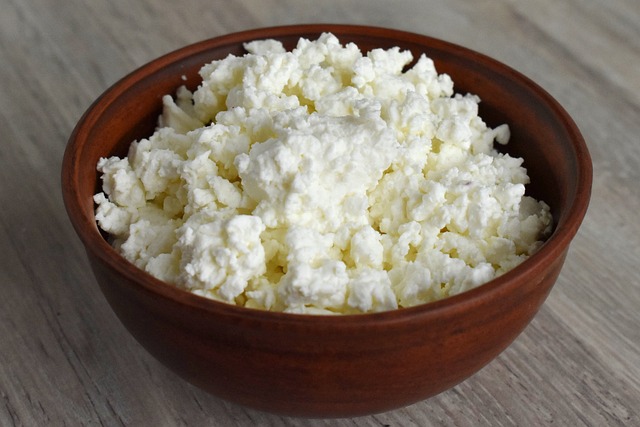
Cottage cheese is a popular dairy product enjoyed by many, but when it comes to sharing our human foods with our pets, its crucial to consider their nutritional needs and health implications. That is why asking can dogs eat cottage cheese? is a complex question. Thus, this article explores why dogs can eat cottage cheese, its benefits, potential risks, and guidelines for feeding it to your canine companion.
Is Cottage Cheese Safe for Dogs?
In short, the answer is yes, dogs can eat cottage cheese in moderation. This dairy product can be a good source of protein, calcium, and other vitamins for dogs. However, its very important to introduce it into their diet slowly and in small amounts to be able to monitor their reaction, as some dogs may be lactose intolerant or have sensitive stomachs. Additionally, dogs can get their calcium and protein from their regular dog friendly diet and so cottage cheese can be an occasional treat offered to pups and not a staple. Despite cottage cheese being non-toxic to dogs, there are still some potential risks associated with feeding it to your pooch to be aware of:
- Lactose Intolerance: Like humans, some dogs can be lactose intolerant. Since cottage cheese does contain lactose, it can still cause digestive upset in sensitive dogs.
- High Fat Content and Calories: Some types of cottage cheese are high in fat, which can lead to weight gain or obesity and other related health issues if too much is consumed. Always choose fat-free or low-fat versions.
- Salt Content: Cottage cheese can be high in sodium, which is not good for dogs, especially those with pre-existing health issues. Always choose unsalted or low-sodium varieties.
How Much Cottage Cheese Can Dogs Eat?
When introducing cottage cheese into your dogs diet, its crucial to consider their size and weight to ensure youre providing an appropriate amount. Additionally, always consult with a vet before feeding new foods to your dog. Here is a general guideline on how much cottage cheese a dog can likely based on their size:
- Extra Small Dogs (<10 lbs): Start with a very small amount, about less than 1 teaspoon, to gauge tolerance.
- Small Dogs (10-25 lbs): Begin with up to 1 teaspoon. If there are no adverse reactions, this can be a treat size, offered on occasion.
- Medium Dogs (25-60 lbs): Try about 1-2 teaspoons. After ensuring there are no negative reactions, you can provide this amount in moderation as a treat.
- Large Dogs (60-100 lbs): Begin with up to about 1 tablespoon. If tolerated well, this can be given as a treat on occasion.
- Giant Dogs (100+ lbs): Start with 1-2 tablespoons and, if there are no issues, you can offer up this as a treat in moderation.
Remember to always introduce new snacks, like cottage cheese, gradually into your dogs diet and observe for negative reactions. Additionally, before offering any new foods to your pup, consult with your veterinarian for personalized advice. Treats, including cottage cheese, should not make up more than 10% of your dogs daily caloric intake to ensure they have a balanced diet. If choosing to offer your dog some cottage cheese, opt for low-fat or fat-free and low-sodium varieties.
Nutritional Benefits of Cottage Cheese
There are some health benefits of cottage cheese, not only for humans but for pooches as well. Some of these include:
- Protein-Rich: Cottage cheese is a good source of protein, which is important for a dogs muscle growth and repair.
- Calcium Content: Of course, cottage cheese contains calcium, which can be helpful for bone and teeth strength.
- Probiotics: Some cottage cheeses contain probiotics, which can help with a dogs gut health, although it is not as common as in other dairy products like yogurt.
Preparation Tips
When offering your dog a new food, like cottage cheese, there are certain precautions to take to ensure you are keeping them as safe as can be. The below tips are helpful guidelines, but always be sure to first consult with a veterinarian first for personalized advice, as your pup is unique.
- Introduction: Start with a small amount to see how your dog reacts. Generally, a bit less than a teaspoon is sufficient for a small dog, while around a tablespoon can usually be offered to larger breeds, depending on their health and tolerances.
- Frequency: Cottage cheese should be an occasional treat, not a regular part of your dogs diet. Majority of your dogs nutrition should come from balanced sources and from foods that are specifically formulated for canine consumption.
- Observation: Watch for any signs of negative reactions like signs of digestive distress, such as diarrhea, vomiting, or gas. If any of these occur, discontinue feeding cottage cheese and consult your veterinarian.

Allergies
Cottage cheese allergies in dogs are a lot less common than allergies to other foods, but it can still occur. If your dog is allergic to cottage cheese, they might exhibit one or more of the following symptoms:
- Skin Irritations: Keep an eye out for redness, rashes, hives, or excessive itching and scratching.
- Gastrointestinal Issues: Some dogs might also show signs of abdominal discomfort or a reduced appetite if they have an allergy. More common symptoms are vomiting, diarrhea, or excessive gas.
- Ear Infections: Dogs with food allergies might develop ear infections, which could be accompanied by a bad odor, discharge, or excessive scratching and shaking of the head.
- Respiratory Problems: Although less common, some allergic reactions can lead to respiratory issues such as coughing, wheezing, or difficulty breathing.
- Anaphylaxis: In rare cases, a severe allergic reaction could lead to anaphylaxis, a life-threatening condition that requires immediate veterinary attention. Symptoms include sudden difficulty breathing, swelling of the face or legs, and collapse.
If you notice any of these symptoms after feeding your dog cottage cheese, discontinue feeding it immediately and consult with your veterinarian. They can help determine if the symptoms are indeed due to an allergy and recommend appropriate diagnosis and treatment. If the symptoms are severe, immediately seek emergency veterinary care.
Cottage cheese can be a safe treat for dogs when given in moderation. Its essential to choose low-fat, low-sodium varieties and to slowly introduce it to them. Always observe your dogs reaction and consult with a veterinarian before introducing new foods into your dogs diet. As with any treat, cottage cheese should not replace a balanced, pet-appropriate diet for your dog.
FAQ
Can Dogs Eat Cottage Cheese with Peaches?
Dogs can eat peaches in moderation, so adding them into cottage cheese is generally okay. Be sure to only offer this to them in small amounts on occasion, and remember that it is always best to consult with a vet first before offering dogs new foods.Be sure to remove the pit and follow the necessary precautions before offering peaches to pups.
Can Dogs Eat Cottage Cheese with Chives?
No, dogs can not eat cottage cheese with chives. This is because chives, onions, and garlic are all toxic to dogs. Cottage cheese that has chives in them, or adding chives to cottage cheese and then feeding it to your dog is very dangerous. Do not feed dogs anything with onions, chives, or garlic in it.
Can Dogs Eat Cottage Cheese for Upset Stomach?
Offering dogs a little bit of plain cottage cheese for an upset stomach or diarrhea could help with digestive issues because of the probiotics in it. Its best to contact a vet if the issues persist and get a professional diagnosis and treatment plan if needed.
Is Cream Cheese or Cottage Cheese Better for Dogs?
Plain cream cheese can be okay for some dogs to eat in moderation. However, oftentimes cream cheese varieties will contain certain seasonings or mixings that are toxic for dogs. For example, chives, onions, and garlic cream cheeses are very dangerous to dogs and you should avoid feeding it to them at all costs.
Recipes
Cottage cheese can be a nutritious addition to your dogs diet when used in moderation. Here are some simple recipes incorporating cottage cheese that you can prepare for your furry friend:
- Ingredients:
- 2 tablespoons low-fat cottage cheese
- 2 tablespoons pumpkin puree (ensure its plain, not the spiced pie filling)
- Instructions:
- Mix the cottage cheese and pumpkin puree in a bowl until well combined.
- When small amounts are offered in moderation, this can be a gentle, fibrous snack for dogs with an upset stomach.
Cottage Cheese and Fruit Medley
- Ingredients:
- 2 tablespoons low-fat cottage cheese
- 1/4 cup diced apples (ensure no seeds)
- 1/4 cup blueberries
- Instructions:
- Mix the cottage cheese with the diced apples and blueberries in a bowl.
- Serve a little bit of this medley as a cool treat, especially on warm days.
- Make sure to use dog-safe fruits and avoid anything toxic to dogs, like grapes or raisins.
Can Dogs Eat Cheese?
Yes, dogs can eat cheese. In fact, cheese is often a great training tool, especially for puppies. Butshoulddogs eat cheese?While some dogs can eat cheese, and most dogs love it, many dogs can be intolerant of cheese. Even for dogs that are able to tolerate cheese, it is probably best fed in moderation.
Benefits of Cheese
Cheese contains protein, calcium, vitamin A, essential fatty acids, and B-complex vitamins. Most dogs love cheese, and trainers often use it for treat-motivated dogs. This snack is also a good way to conceal pills for dogs that require medication.
Feeding Cheese Safely to Your Dog
While cheese can be safe to feed to your dog, there are some things to remember. Cheese is high in fat, and feeding too much to your dog regularly can cause weight gain and lead to obesity. Even more problematic, it could lead to pancreatitis, a serious and potentially fatal illness in dogs. In addition to the problems presented by the high-fat content, some cheeses contain herbs or other products that are toxic to dogs, such as garlic, onions, and chives.
Therefore, its better to feed your dog low-fat cheeses, like mozzarella, cottage cheese, or a soft goat cheese. Cottage cheese is lower in fat and sodium than other cheeses, helping reduce the risk of obesity. Cottage cheese is also lower in lactose, thus reducing the likelihood of intestinal upset.
Lactose Intolerance in Dogs
Not all dogs digest cheese well, and while cheese contains little lactose when compared to whole milk, dogs with severe cases of lactose intolerance may have adverse reactions to cheese, even in small quantities. Observe your dog closely for signs of intestinal upset after feeding cheese for the first time, andconsult your veterinarian with any questions you may have about adding cheese to your dogs diet.
Cottage Cheese For Dogs: A Good Idea or Not?
Are you a pet parent constantly wrestling with questions about your dogs diet? Over the years, cottage cheese has sparked considerable debate in the canine community regarding its safety and benefits for our furry friends. This blog post delves deep into the question that might be pouncing around your mind: Can dogs eat cottage cheese? Strap in as we journey through an exciting culinary exploration, shedding light on the potential benefits, risks, and feeding guidelines of this dairy delight for your beloved pooch. A must-read if food experimentations laced with fur-edged fun and caution are what you seek.
Yes, in most cases, it is safe for dogs to eat cottage cheese. Cottage cheese is low in fat and sodium, making it an ideal occasional treat for your furry friend. Furthermore, cottage cheese contains protein, calcium, vitamins A and B-complex vitamins, and essential fatty acids that can benefit your dogs health. However, you should always consult with a veterinarian before introducing new foods into your dogs diet, especially if they have specific dietary restrictions or medical conditions.
Cottage Cheese for Dogs
When it comes to expanding our dogs diet beyond traditional dog food, cottage cheese can be a healthy and appealing option. This creamy dairy product made from curds is not only delicious but can also provide numerous benefits to our canine companions. It is important, however, to understand how to incorporate cottage cheese into their diet responsibly.
Cottage cheese is generally safe for dogs to consume in moderation, but it is crucial to consider a few factors before adding it to their meals. First and foremost, always check with your veterinarian before introducing any new food into your dogs diet, especially if they have specific dietary restrictions or health conditions. Its also important to choose plain and unsweetened cottage cheese without any added flavorings or additives that may be harmful to dogs.
In my experience as a dog owner, I introduced cottage cheese to my aging Labrador retriever after consulting with my vet. She had become quite picky with her regular meals and was beginning to lose weight. The addition of a small amount of cottage cheese not only enticed her back to her bowl but also provided her with some much-needed protein and nutrients.
Vet: Adding a spoonful of cottage cheese to your dogs meals can be beneficial in terms of taste and nutrition. Its a great way to entice them if theyre not eating well.
Dog Owner: Will the high-fat content in cottage cheese be an issue?
Vet: In small amounts, the fat content should not pose a problem. If your dog is on a weight management plan or has certain health issues such as pancreatitis, you may want to opt for low-fat or fat-free varieties.
Now that we understand the basics of feeding cottage cheese to dogs, lets explore the various health benefits this tasty treat can offer.
Health Benefits of Cottage Cheese for Dogs
Cottage cheese, like many dairy products, is a rich source of essential nutrients that can contribute to the overall health and well-being of our furry friends. Lets take a closer look at some of the specific benefits:
- Protein:Cottage cheese contains high-quality protein, which is crucial for building and repairing tissues in dogs. This nutrient supports muscle development, helps maintain a healthy coat, and supports the immune system.
- Calcium:Calcium is vital for strong bones and teeth, and cottage cheese is an excellent source of this mineral. It can be especially beneficial for puppies during their growing phase and for older dogs who may be at risk of calcium deficiency.
- Digestive Health:The active cultures present in cottage cheese can promote good gut health in dogs by supporting a healthy balance of bacteria in the digestive system. This can aid in digestion and help prevent gastrointestinal issues.
- Weight Management:Cottage cheese is relatively low in calories compared to other treats, making it suitable for dogs on weight management plans. It can serve as a satisfying snack without adding excessive calories to their diet.
- Hydration:Cottage cheese has a high moisture content, which can be beneficial for dogs who struggle with adequate hydration. Adding a spoonful of cottage cheese to their meals can help ensure they are getting some extra liquids.
My friends dog, a boxer, had recently undergone dental surgery and was experiencing difficulty eating regular kibble. The veterinarian suggested incorporating cottage cheese into his meals as it was soft and palatable while providing essential nutrients during his recovery process.
While cottage cheese offers several health benefits for dogs, it is essential to consider potential risks and feeding guidelines to ensure their well-being.
Nutritional Value and Calcium Content
Cottage cheese is not only a delicious snack for humans, but it can also provide some nutritional benefits to our canine companions. This dairy product is low in fat and sodium, making it a healthier option compared to other types of cheese. It contains protein, calcium, vitamin A, essential fatty acids, and B-complex vitamins. These nutrients are already present in a dogs regular diet, but cottage cheese can serve as an occasional addition to enhance their overall nutrient intake.
Calcium is one of the key components found in cottage cheese. It plays a vital role in maintaining healthy bones and teeth, as well as supporting proper muscle function and nerve transmission. For dogs that may have deficiencies or require an extra boost of calcium in their diet, cottage cheese can be a suitable option due to its relatively high calcium content.
However, its important to note that while cottage cheese can provide these nutritional benefits, it should be given in moderation alongside a balanced diet. Excess calcium intake can lead to health issues such as skeletal abnormalities or urinary tract problems in certain breeds prone to these conditions.
Now, some might wonder if the nutritional value of cottage cheese justifies incorporating it into a dogs diet when there are alternative sources of these nutrients available. While its true that dogs can obtain calcium from various foods like meat, fish, and vegetables, cottage cheese offers an easily digestible and palatable option. Additionally, some dogs may be picky eaters or have digestive sensitivities that prevent them from consuming these other sources consistently. In such cases, cottage cheese can be a valuable tool to ensure your furry friend receives the necessary nutrients.
So, when considering the nutritional value of cottage cheese for dogs, it boils down to understanding your dogs specific dietary needs and consulting with your veterinarian to determine whether cottage cheese would be beneficial as part of their overall nutrition plan.
Digestibility and Suitability for Dogs
One of the factors that make cottage cheese a suitable choice for dogs is its digestibility. Thanks to its low lactose content, cottage cheese is generally well-tolerated by most dogs, including those with mild lactose intolerance. The fermentation process involved in producing cottage cheese reduces the lactose levels, making it easier on the digestive system compared to other dairy products.
Imagine having a dog who experiences occasional stomach upset or has a sensitive digestive system. In such cases, introducing small amounts of cottage cheese into their diet can help provide relief and alleviate gastrointestinal issues. It can serve as an alternative protein source that is gentle on the stomach while providing essential nutrients.
Additionally, cottage cheese can be beneficial for dogs recovering from digestive illnesses or surgeries. Its soft, creamy texture can be easier to consume and digest than some other foods, making it a valuable option for maintaining proper nutrition during recovery periods.
However, despite its suitability for many dogs, its essential to introduce cottage cheese gradually into their diet and monitor their response. Every dog is unique and may have different tolerances and sensitivities. Always keep an eye out for any adverse reactions such as diarrhea or vomiting that might indicate an intolerance or allergy to cottage cheese.
With a good understanding of the nutritional value and digestibility of cottage cheese established, lets now delve into the potential health risks associated with feeding cottage cheese to dogs.
Cottage cheese is a suitable and digestible protein source for many dogs, especially those with sensitive stomachs or recovering from digestive illnesses or surgeries. However, its important to introduce it gradually and monitor your dogs response for any adverse reactions.
Potential Health Risks of Cottage Cheese for Dogs
While cottage cheese can be a safe and nutritious addition to a dogs diet, it is crucial to be aware of potential health risks associated with its consumption. Understanding these risks will help you make informed decisions about feeding cottage cheese to your furry companion.
One of the main concerns when it comes to cottage cheese is the possibility of allergic reactions in dogs. Just like humans, dogs can develop allergies to certain foods, including dairy products like cottage cheese. Symptoms of an allergic reaction may include itching, hives, swelling, vomiting, or diarrhea. If you notice any signs of an allergic reaction after giving your dog cottage cheese, its essential to consult with your veterinarian for proper guidance.
Another risk to consider is lactose intolerance in dogs. Lactose is the natural sugar found in milk and dairy products, including cottage cheese. Some dogs lack the necessary enzymes to properly digest lactose, leading to symptoms such as bloating, gas, diarrhea, and stomach discomfort. If you suspect that your dog may be lactose intolerant, it is best to avoid feeding them cottage cheese or any other dairy products. Opting for lactose-free alternatives or discussing suitable substitutes with your vet may be a better option.
Its worth mentioning that while some dogs may have allergic reactions or lactose intolerance issues related to cottage cheese consumption, others can tolerate it without any adverse effects. Each dog is unique, and their tolerance to certain foods can vary. Therefore, its essential to observe your dogs response when introducing new foods into their diet and consult with a veterinary professional if necessary.
Overall, while cottage cheese can offer health benefits for dogs when fed in moderation and as part of a balanced diet, its crucial to be mindful of potential risks such as allergies and lactose intolerance specific to your furry friend.
Now that we understand the potential health risks associated with feeding cottage cheese to dogs, lets delve specifically into the risks related to allergies and lactose intolerance.
Allergy and Lactose Intolerance Risks
Allergies and lactose intolerance are common concerns when it comes to introducing cottage cheese into a dogs diet. Lets take a closer look at each of these risks and how they can impact your canine companion.
Imagine youve decided to include cottage cheese in your dogs meal plan to provide them with additional protein and calcium. However, after giving them a small amount, you notice that they start scratching excessively, develop red patches on their skin, or experience gastrointestinal issues like vomiting or diarrhea. These could be indications of an allergic reaction. Its crucial to pay close attention to any changes in your dogs behavior or physical condition after feeding them cottage cheese.
Allergic reactions occur when a dogs immune system mistakenly identifies certain substances in cottage cheese as harmful. This triggers an inflammatory response that manifests in various symptoms. If your dog shows signs of an allergic reaction, it is advisable to discontinue feeding them cottage cheese and consult with your veterinarian for proper diagnosis and guidance.
Similarly, lactose intolerance can also pose risks when feeding cottage cheese to dogs. Dogs with lactose intolerance lack the necessary enzyme called lactase to break down lactose properly. As a result, undigested lactose can ferment in their gut, leading to discomfort and digestive disturbances such as bloating, gas, or diarrhea.
If you suspect that your furry companion may be lactose intolerant, it would be best to avoid giving them cottage cheese or opt for lactose-free alternatives. Discussing dietary options with your veterinarian can ensure that your dog receives appropriate nutrition without experiencing any adverse effects related to lactose intolerance.
By being aware of the potential risks associated with allergies and lactose intolerance when feeding Cottage Cheese to dogs, you can make informed decisions about your pets diet and well-being.
Guidelines for Feeding Cottage Cheese to Dogs
Cottage cheese can be a safe and nutritious addition to your dogs diet when given in moderation. It can be particularly beneficial for picky eaters or dogs with sensitive stomachs. However, its important to follow some guidelines to ensure the well-being of your furry friend.
First and foremost, introduce cottage cheese gradually into your dogs diet. Begin with small amounts and observe how their body reacts. Some dogs may have no issues digesting cottage cheese, while others may experience digestive upset or diarrhea due to lactose intolerance. If you notice any adverse reactions, discontinue feeding cottage cheese immediately.
Next, choose the right type of cottage cheese for your dog. Opt for low-fat or fat-free varieties with no added salt or flavorings. These options are typically safer and healthier for your pup.If you plan on including cottage cheese as a regular part of their meals, ensure that the brand you choose does not contain excessive sodium levels.
When it comes to portion control, moderation is key. Offer cottage cheese as an occasional treat or meal supplement rather than a primary source of nutrition. For most dogs, a generous spoonful mixed with their regular kibble twice a day should suffice. Be mindful of the calorie content of cottage cheese, especially if youre using full-fat versions adjust the amount of kibble slightly to account for the increase in calories.
For instance, if you typically feed your dog 1 cup of kibble per meal, reduce it to cup when adding cottage cheese to maintain an appropriate calorie balance.
Additionally, avoid feeding cottage cheese containing any additives that are toxic to dogs. Ingredients like chives, onions, and garlic can be harmful and should be avoided.
Lastly, keep in mind that every dog is unique, and what works for one may not work for another. If youre unsure about feeding cottage cheese to your dog or have concerns about their specific dietary needs, its always best to consult with your veterinarian. They can provide personalized guidance based on your dogs health, age, and any underlying conditions.
Alternatives to Cottage Cheese for Dogs
While cottage cheese can be a nutritious option for dogs in moderation, there are also alternative options available that can provide similar benefits. These alternatives are particularly useful if your dog has lactose intolerance or if you simply want to vary their diet.
One popular alternative is yogurt, specifically plain, unsweetened yogurt without any artificial sweeteners or flavors. Yogurt contains probiotics that promote healthy digestion and immune function. Just like with cottage cheese, start with small amounts and monitor how your dog reacts before incorporating it into their regular meals.
Bone broth is another excellent option for adding nutrients and variety to your dogs diet. It is packed with vitamins, minerals, and collagen, which can support joint health and digestion. You can make your own bone broth using bones from chicken or beef, ensuring they are free from seasoning or additives. Simply simmer the bones with water for several hours until you have a nourishing broth.
Chicken broth can also be used as an alternative to cottage cheese. It is a flavorful option that can entice picky eaters and provide additional moisture to your dogs meals. However, be cautious of store-bought broths that may contain added salt or seasonings. Opt for low-sodium options or consider making homemade chicken broth using plain chicken meat and water.
Whether you choose to stick with cottage cheese or explore these alternatives, its crucial to evaluate what works best for your individual dogs needs and preferences. Experimenting with different options and observing how your dog responds will help you find the right addition to their diet.
Cheesy Treats for Dogs
SaleBestseller No. 1 Ecokind Himalayan Dog Chews, Healthy Treats, Odorless , Rawhide Free, Long Lasting Bones for Aggressive Chewers, Indoors & Outdoor Use, Made in The Himalayans, Large (Pack of 4)
Ecokind Himalayan Dog Chews, Healthy Treats, Odorless , Rawhide Free, Long Lasting Bones for Aggressive Chewers, Indoors & Outdoor Use, Made in The Himalayans, Large (Pack of 4) - KEEP YOUR DOG HAPPY FOR HOURS with our delicious Yak cheese EcoKind dog chews from the Himalayas! Your doggy will love the yummy natural flavor, while you can rest assured that your pup is enjoying a healthy snack!
- SPOIL YOUR DOGGY WITH A HEALTHY SNACK! Our mouth-watering traditional yak chews are made in Nepal using only 100% milk, without any preservatives, additives or artificial ingredients.
- PERFECT SIZE FOR EVERY CHEWER! If your doggie loves to chew, then our large sized 6-8 EcoKind dog chews made in the Himalayas are ideal for you, since they are ODORLESS and can be used both indoors and outdoors!
- UNLIKE ALL THOSE LOW-QUALITY DOG CHEWS, the EcoKind Pet Treats canine-approved dog chews from the Himalayas will keep your furry friend busy for hours, help block plaque buildup and can be easily digested!
- THE ECOKIND PET TREATS SATISFACTION CERTAINTY! Being pet owners ourselves, we know exactly how to make your dogs tail wag! Thats why our dog chews are backed by our 100% satisfaction certainty!
 Mighty Paw Yak Cheese Dog Chews All- Natural Treats High Protein Treat with 68 Grams of Protein Per Chew Delicious and Long Lasting Odor Free with Limited Ingredients Safe Puff Ball
Mighty Paw Yak Cheese Dog Chews All- Natural Treats High Protein Treat with 68 Grams of Protein Per Chew Delicious and Long Lasting Odor Free with Limited Ingredients Safe Puff Ball - 100% Natural 3 Simple Ingredients: The Mighty Paw Cheese Sticks are sourced in Nepal and made with only 3 ingredients: yak & cow milk, salt and lime juice. That makes them fully digestible, lactose-free, grain-free, gluten-free, chemical-free, preservative-free, mess-free, smell-free, and most importantly guilt-free! And just in case youre wondering: Its the curing process that removes the lactose from the milk
- Limited-Ingredient: Our yak milk cheese sticks are a great alternative to bleached rawhide chews. Theyre also a great option for dogs with sensitive stomachs and chicken, beef, pork & grain allergies.
- Rich in Protein and Calcium: The Mighty Paw Cheese Sticks are naturally rich in protein and calcium, which is great for healthy muscle growth as well as bone health.
- Long-lasting Chew: The chews hard consistency means theyre a long-lasting snack. That makes them a great choice for teething puppies and bored or anxious power chewers up to 75 lbs.
- Information for Safe Chewing: Always supervise your dogs chewing. Avoid allowing your dog to consume sizable chunks. Remove end pieces or sizable chunks, & microwave them into cheese puffs for a safe treat your dog will love. Instructions on package.
 Cloud Star Tricky Trainers Soft & Chewy Dog Training Treats 5 oz Pouch, Cheddar Flavor, Low Calorie Behavior Aid with 130 treats
Cloud Star Tricky Trainers Soft & Chewy Dog Training Treats 5 oz Pouch, Cheddar Flavor, Low Calorie Behavior Aid with 130 treats - RECOMMENDED BY PROFESSIONAL TRAINERS Professional trainers use and recommend Tricky Trainers for dog training & behavior aids.
- 3 CALORIES PER TREAT Ideal for small, medium, and large breeds, these tiny, low calorie treats wont fill them up or cause weight gain. Perfect for long training sessions with 130 treats per bag!
- HIGHLY PALATABLE & MOTIVATING These high protein, chewy training treats are made with real cheddar cheese that tastes and smells amazing, keeping your dogs attention for successful training.
- SOFT & CHEWY TEXTURE DOGS LOVE These deliciously soft and chewy training treats wont dry out, crumble, or leave greasy residue on your hands the tools you need to develop good habits and behavior!
- DOG TRAINING TREAT Baked in the U.S.A with U.S. and imported ingredients, these canine training treats contain no artificial flavors or colors, and no wheat or corn.
 Raw Paws Freeze Dried Cheddar Cheese Treats for Dogs, 3-oz Crunchy Dog Cheese Puffs Made in USA, Natural Dried Cheese for Dogs 100% Real Wisconsin Cheddar Cheese Bites for Dogs Dog Cheese Treats
Raw Paws Freeze Dried Cheddar Cheese Treats for Dogs, 3-oz Crunchy Dog Cheese Puffs Made in USA, Natural Dried Cheese for Dogs 100% Real Wisconsin Cheddar Cheese Bites for Dogs Dog Cheese Treats - FREEZE DRIED DOG TREATS: Your furry best friend will love our freeze dried cheddar cheese dog treats. Our gentle freeze-drying method locks in natural vitamins and minerals making our whole-food freeze dried cheese bites delicious and nutritious. Our delicious cheese dog treats are made with 100% Real Wisconsin Cheese!
- HIGH IN CALCIUM: Cheddar cheese for dogs is rich in protein, calcium, vitamin A, essential fatty acids, and B-complex vitamins. Calcium is an essential mineral that supports dog heart health, aids in digestion, and builds and maintains strong muscles, bones, and teeth. Cheesy dog treats are excellent for your canines health and wellbeing helping him to live a happier, longer life!
- DOG TRAINING TREATS: Grain-free dog treats are easily digestible, free of corn, wheat, soy, antibiotics, preservatives, additives or fillers. Perfect for dog training, relieving dog anxiety, or when its just time to spoil. Your pups tail will be wagging for these tasty and nutritious freeze dried cheese bites for dogs.
- USA MADE CHEESE DOG SNACKS: All-Natural real cheddar cheese treats for dogs made in USA only. Our dog freeze dried treats are packaged in 3 and 6-ounce resealable zip-lock bags, to keep these yummy dog cheese treats fresh and full of flavor. Convenient and easy to serve, no refrigeration required.
- 100% SATISFACTION GUARANTEED: We stand behind our brand and value our customers satisfaction on every single order. If youre not completely satisfied, we will provide a Full Refund Guaranteed no questions asked.
 Bocces Bakery Oven Baked Cheese Recipe Treats for Dogs, Wheat-Free Everyday Dog Treats, Made with Real Ingredients, Baked in The USA, All-Natural Soft & Chewy Cookies, Cheese, 6 oz
Bocces Bakery Oven Baked Cheese Recipe Treats for Dogs, Wheat-Free Everyday Dog Treats, Made with Real Ingredients, Baked in The USA, All-Natural Soft & Chewy Cookies, Cheese, 6 oz - These soft-baked Bs are every doggys favorite from puppies, to picky eaters, to seniors with sensitive mouths, too! We baked a softer cookie with limited ingredients and all-natural preservatives perfect for pups looking for a chewier bite.
- Perfect for Everyday Treating: With just 8 ingredients (like oat flour, cheese and rolled oats!) and only 9 calories per treat, you can feel good treating your favorite pup to this yummy recipe.
- Proudly Baked in the USA: We start each recipe with the highest quality (tastiest!) ingredients, sourced in the USA local to our bakeries.
- Our Promise: Wheat, corn, and soy-free recipes and never, ever any artificial ingredients or preservatives. We keep our ingredient lists short, our batches small, and our ovens toasty.
- Our Story: Bocces was started in a tiny NYC kitchen with a mixer, an oven and a scruffy mutt named Bocce, with the belief that our furry friends (pups and kitty cats, too!) deserve better. Better food with fresher, simpler, all-natural ingredients.
FAQs: Cottage Cheese For Dogs?
Is cottage cheese safe for dogs with health conditions such as lactose intolerance or kidney problems?
Yes, cottage cheese can be safe for dogs with health conditions such as lactose intolerance or kidney problems. Cottage cheese is lower in lactose compared to other dairy products, making it easier for dogs with lactose intolerance to digest. Additionally, cottage cheese is a good source of protein and is low in phosphorus, which can benefit dogs with kidney problems. However, its important to consult with your veterinarian to determine the appropriate amount and frequency of cottage cheese to include in your dogs diet based on their specific health condition.
How much cottage cheese should be fed to a dog and how often?
The amount of cottage cheese to feed a dog and how often depends on their size, age, and overall health. As a general guideline, it is recommended to feed dogs cottage cheese in moderation as a treat or as part of their regular diet. A good rule of thumb is to offer 1-2 tablespoons of cottage cheese per day for small dogs, and up to 1/4 cup for larger breeds. However, individual needs may vary, so its important to consult with a veterinarian to determine the appropriate portion size for your specific dog.
Are there any potential risks associated with feeding dogs cottage cheese?
Yes, there can be potential risks associated with feeding dogs cottage cheese. While cottage cheese is generally safe for dogs in moderate amounts, excessive consumption can lead to digestive issues such as diarrhea or upset stomach. Additionally, some dogs may be lactose intolerant, meaning they lack the necessary enzymes to digest dairy products properly. According to a survey conducted by the American Kennel Club, 65% of dogs have some degree of lactose intolerance. Therefore, its important to introduce cottage cheese gradually and monitor your dogs reaction before making it a regular part of their diet.
What nutritional benefits does cottage cheese have for dogs?
Cottage cheese can be a nutritious snack for dogs as it is a good source of protein, calcium, and essential vitamins. The protein in cottage cheese helps in muscle development and repair, while calcium supports strong bones and teeth. Additionally, cottage cheese is low in fat and lactose compared to other dairy products, making it easier for dogs to digest. However, its important to note that every dog is different, so consulting with a veterinarian before introducing cottage cheese into their diet is essential.
Can cottage cheese be used as a substitute for other types of dog food or treats?
Yes, cottage cheese can be used as a substitute for other types of dog food or treats in certain situations. Cottage cheese is high in protein and calcium, which can provide nutritional benefits to dogs. However, it should not be the sole source of nutrition as it lacks essential nutrients present in balanced dog diets. According to a study published in the Journal of Small Animal Practice, cottage cheese can be used occasionally as a treat or to aid in boosting appetite for picky eaters. But its always important to consult with a veterinarian before making any significant changes to your dogs diet.

